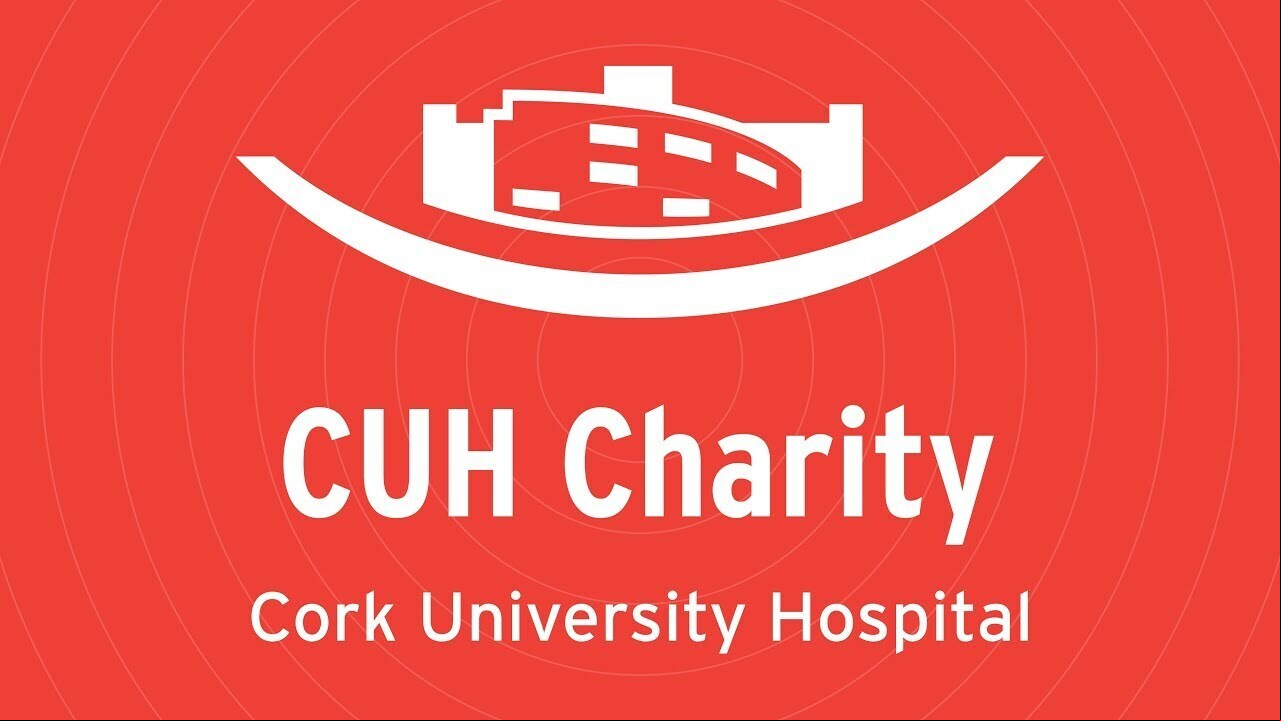
Children’s Needs are Central to CUH Paediatric Department
Dr David Mullane says the success of CUH paediatric services is down to the staff’s dedication to their young patients and their families

Cork University Hospital prides itself in putting children at the very core of every service delivered by the hospital's dedicated staff.
With more than 6,000 issions annually and some 35,000 children treated at the paediatric department at Cork University Hospital (CUH) in 2019, it is a busy section of the hospital serving Cork and Munster.
The long-awaited new children's hospital at CUH will be a welcome development for the staff as well as for the children availing of the service.
Dr David Mullane, consultant paediatrician and clinical director for paediatrics at CUH, leads the department and also oversees the management of children with respiratory conditions.
"We have great staff providing care in Cork for children referred from all over Munster to CUH," says Dr Mullane. "What we need now are modern and child friendly inpatient facilities. While it is good that the National Children’s Hospital is being built, the children of this region deserve a similar standard of facility.
"Last year, less than 2% of children itted here required transfer to Dublin. That number will not increase when the NCH is complete. The vast majority of children will continue to be treated in Cork, as close to home as possible.
“CUH is a specialist centre for the treatment of children with cystic fibrosis. 110 children with CF from all over Munster have all of their care provided by the CF multidisciplinary team at CUH."
More than 450 children with diabetes and over 600 children with epilepsy attend CUH. Specialist services in paediatric emergency medicine, cardiology, allergy, endocrinology, dermatology, developmental and general paediatrics are also provided at CUH. Paediatric surgery is also catered for at CUH with orthopaedics, general surgery, urology, ENT, plastic surgery/burns, cleft lip and palate.
There are over 120 paediatric nurses and healthcare assistants in the department. There are many health and social care professionals including physiotherapy, OT, speech and language therapy, dietetics and social work. Porters, cleaners and catering staff are also integral to the smooth running of the department.
Dr Mullane says that the main goal of the department is that the new children's hospital at CUH is completed as soon as possible. “The progress of this project has been frustratingly slow but planning permission is now to be submitted imminently”.
This 78-bed CUH children's hospital will provide state-of-the-art facilities and will allow the CUH and MUH (Mercy University Hospital) children's services to amalgamate into a single large regional children's hospital.
Short term goals at CUH are the construction of a new children's emergency department due in early 2021 and creating a new operating theatre for children.

"The care my son receives is second to none"
A monitor to the side of 12-and-a-half-year-old Darragh Guinevan's bed in a single room in CUH's children's unit reveals that his oxygen level is normal.
"He's doing alright," says his mother, Gillian. Darragh has complex needs known as global development delay. He is non-verbal, is PEG fed which means a tube goes into his stomach. He is on breathing and also has epilepsy.
Because he has low muscle tone, he is confined to a wheelchair. He is totally dependent, needing 24-hour care.
Relatively speaking, Gillian says that Darragh is doing well this year. "He would have been in hospital an awful lot in the past. This year, he was in twice with epilepsy. We got him through the summer. This is his second visit this winter because he has chest issues. The winter is always a critical time for Darragh as he can pick up infections.
"Gillian says the care her son receives at the hospital is "second to none. The staff are like part of the family". But there are limitations in the children's unit which Gillian would like to see addressed. "Because of Darragh's condition, he carries resistant bugs so he has to be in a room of his own. There is no shower or bath here so he has to have bed baths. I'm sleeping in a chair which is back-breaking. I'm finding it very hard. I'd like to see showering facilities for children with disabilities. Also, we could do with a little more room."
While Darragh doesn't appear to understand why he's in hospital, he knows he's not at home. "He was delighted the other day when we got him home on Wednesday. He was smiling. But he was back in on Sunday. I'm hoping we'll go home at the weekend. The antibiotic he's on is a specific one for the bug he carries. He has to have five doses a day of it and it has to be istered intravenously.
Gillian has one other child, 15-year-old Aisling. The family home has been adapted for wheelchair use. Asked how she keeps her spirits up, Gillian says: "You have to keep going."
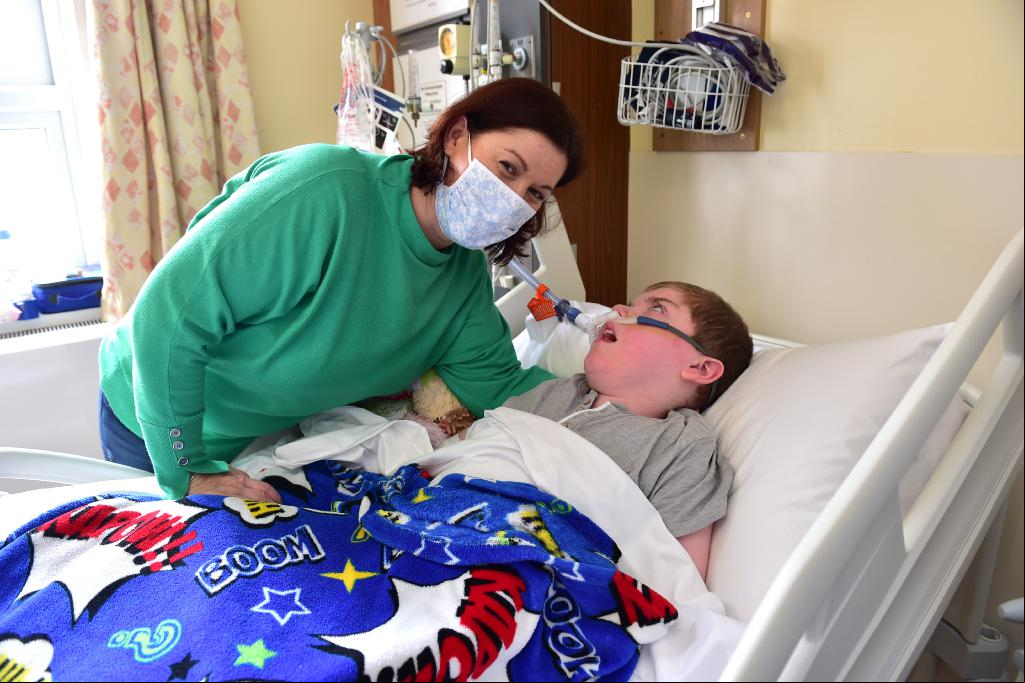
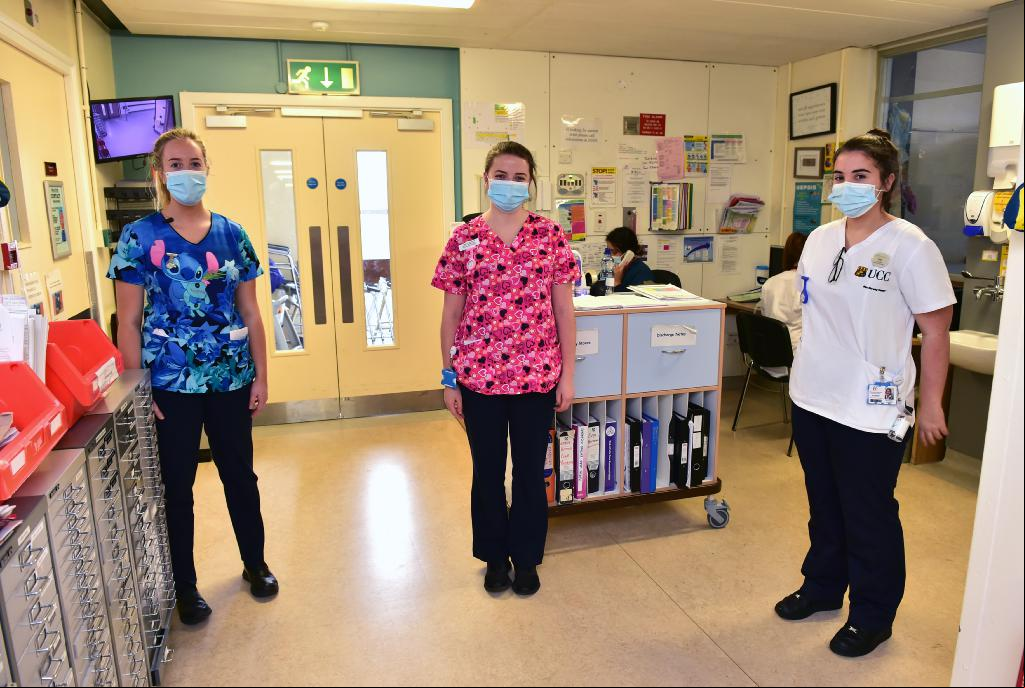
Nurses are closest for children and parents
Clinical nurse manager at CUH's children's unit, Marie Watson, says one of the most important qualities needed for looking after sick children is empathy.
"You're not just looking after the child. You're also looking after the parents, the grandparents and the siblings," she points out.
The challenges in paediatric nursing are unique.
"As paediatric nurses, we embrace the opportunity to advocate for children from the start of their lives." Very young children cannot tell the nurse where their pain is or what is wrong with them. It's important then to read the non-verbal cues such as "the scrunching of their fingers and toes and the nuances of the colour of their skin and the look in their eyes."
Like her fellow colleagues, Marie is looking forward to the opening of the new children's hospital at CUH.
"We're right up there in of research, nursing care and medical care. The only thing we're lacking are the facilities to deliver it. That's very frustrating. We have children who are here short term and also long term. We'd like to be able to give then some degree of normality. Play is a huge part of their recovery."


The serious business of playtime
Play is the main occupation of childhood, whereby children develop movement, thinking, feelings and social skills.
The Great Outdoors.
Children benefit from daily outside play to help with their sleep, concentration and mood. Outside, climbing, rolling, carrying, pulling and dragging all help develop strength and body awareness, building blocks for later fine motor and self-care skills. The child holding onto the moving swing or pushing a wheelbarrow is building foundations for small skills like writing or buttons.
Hands on, Head on:
We've seen a decline in fine motor skills in the last 20 years. Children develop many hand movements and sensitivity through play on the floor, crawling, pulling up on furniture, building, pulling toys part, pushing together, or crafting. This prepares them for precise movements in handwriting, laces, buttons and work skills.

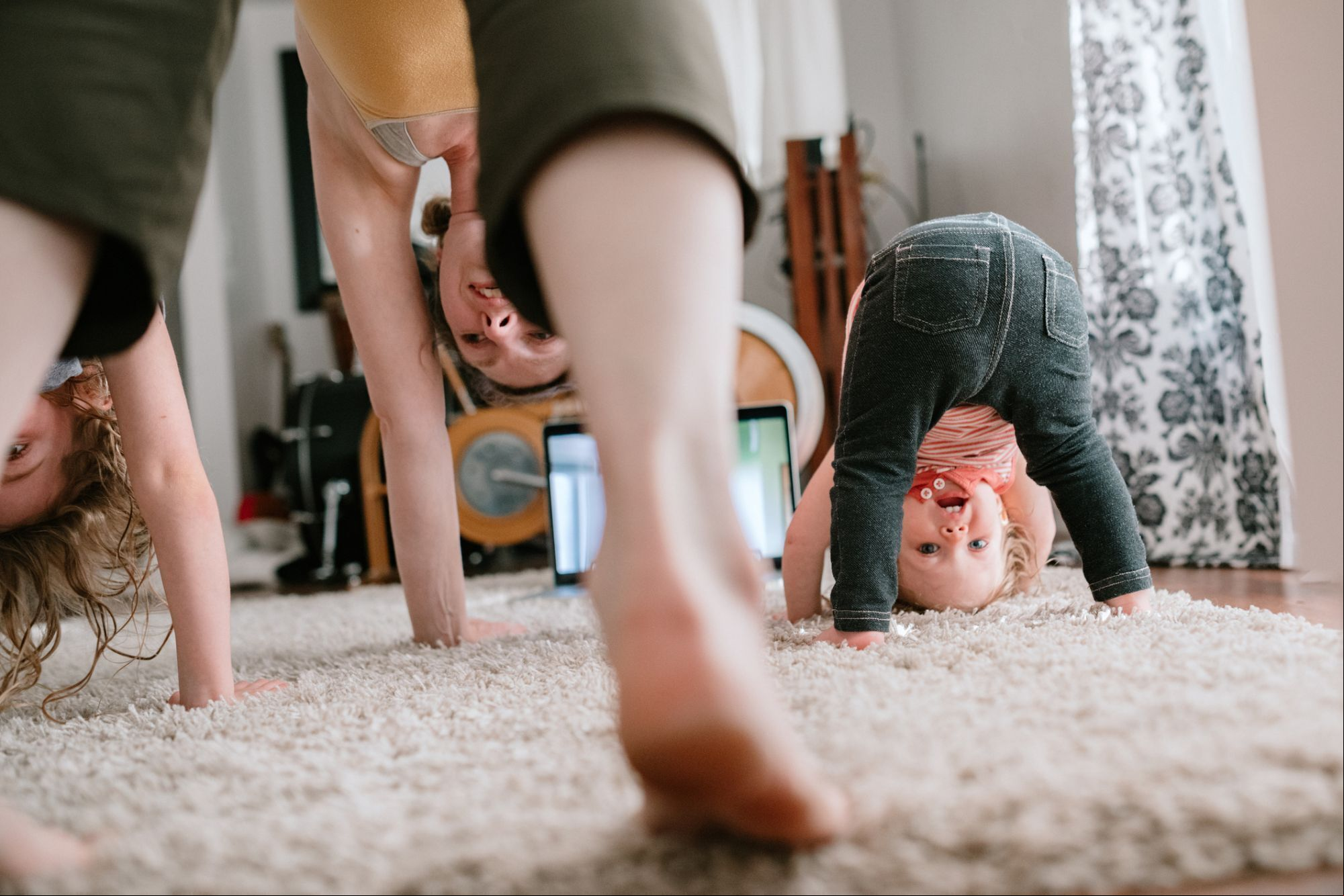
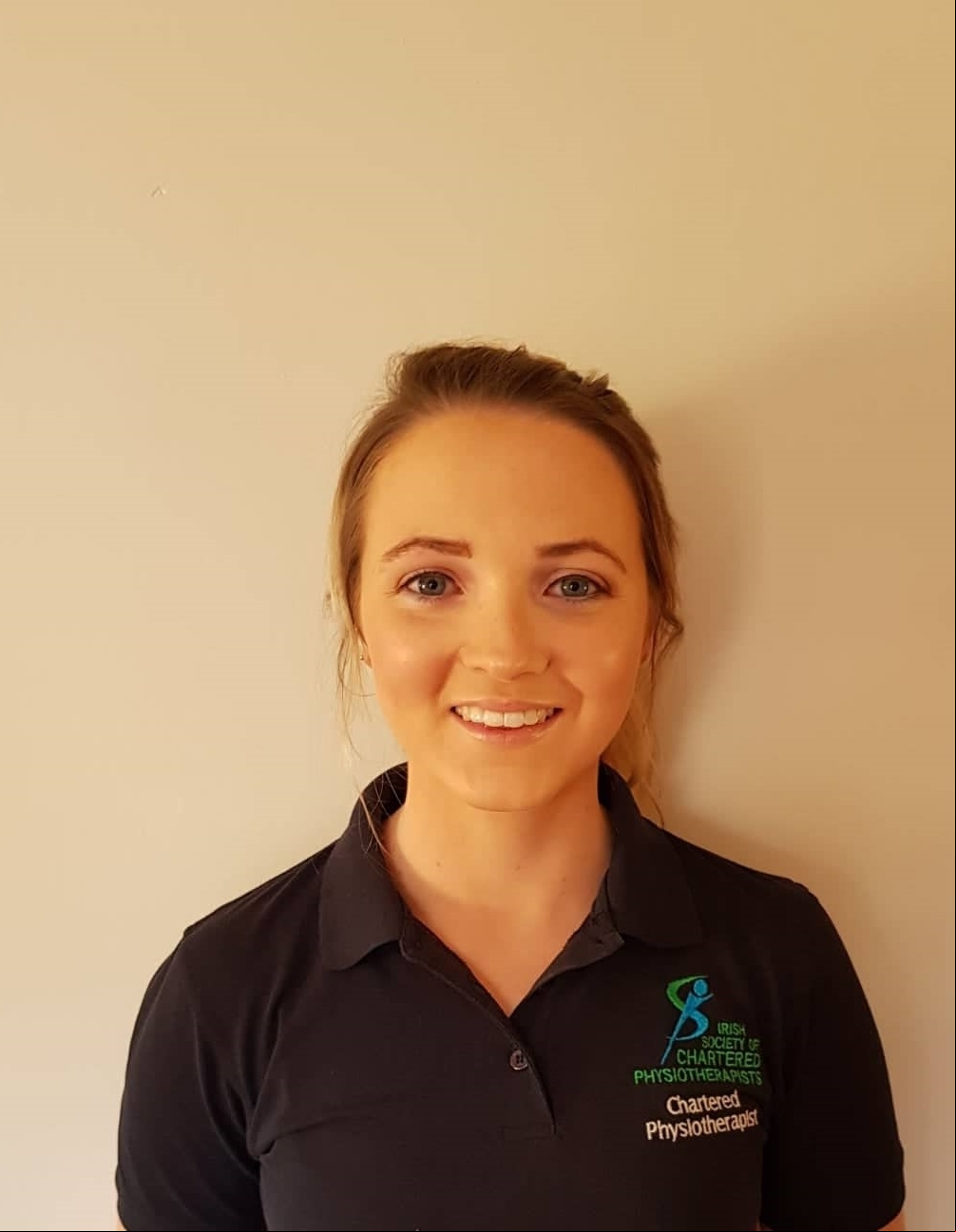
Why exercise is important for children
Fiona Culloty, acting senior physiotherapist, CUH, outlines the important role exercise plays in promoting health for children
Exercise: Physical health benefits for children:
· Promotes healthy growth and development
· Cardiovascular benefits – helps to keep the heart and lungs strong and healthy
· Promotes and helps maintain a healthy weight
· Promotes a healthy Immune system
· Helps to reduce risk of developing cardiovascular disease and Type 2 diabetes
· Improves muscle strength, flexibility, bone health and co-ordination
· Emotional and cognitive health benefits
· Social and self-esteem benefits
· Helps to reduce fatigue, stress and anxiety
· Helps to improve sleep and energy levels

How much activity?
According to HSE recommendations, children should be exercising at a moderate-vigorous level for 60 mins every day.
Strengthening and flexibility exercises should be included 3 times a week.
Children under 6 who are walking should be active for at least 3 hours a day.

What do you mean by “moderate” and “vigorous?”
Moderate: Increase in your breathing level, heart rate, working up a sweat but you can still talk while exercising.
Vigorous: Further increase in breathing level, heart rate and sweat. Feeling more “out of breath”.

What types of activity/exercise?
· Cycling
· Trampoline
· Online/Virtual Classes
· Running
· Skipping
· Football, Soccer, Basketball, Hockey
· Dancing
· Walking – brisk pace
· Hopscotch
· Swimming
· Yoga/Pilates/Zumba
· Martial arts
· Housework e.g. hoovering, washing floors, window washing

Up to 5 Irish children and teenagers are diagnosed each week with Type 1 diabetes
Stephen O'Riordan, consultant endocrinologist, says CUH has a fantastic paediatric diabetes team, ready to advise parents how to recognise and treat diabetes. Here he highlights the rising problem of Type 1 Diabetes (T1D) for children in Ireland
Type 1 Diabetes (T1D) in childhood is a unique condition that we all need to know about.
T1D is and autoimmune condition affecting 3,500 to 4,000 children in Ireland with over 470 children and teenagers receiving all their diabetes care with the paediatric diabetes team in Cork University Hospital.
Why does Type 1 Diabetes happen?
Type 1 diabetes is an autoimmune condition affecting 1 in 500 children with onset over days or weeks. This condition can occur at any age in childhood or early adult life and causes a complete deficiency of insulin. Thus children will need lifelong daily insulin therapy. It is caused by the body’s own immune system destroying the insulin-making cells (beta-cells) of the pancreas.
What are the Signs and Symptoms of Type 1 Diabetes
The four main symptoms of Type 1 diabetes are easy to :
· Thirst: Excess drinking, unable to quench thirst.
· Toilet: Frequent urination, particularly at night.
· Tiredness: Lack of energy, sleeping more than usual.
· Weight loss: Rapid weight loss over a short period.
What can I do as a parent if I think my child has Type 1 Diabetes?
Diagnosis: If any of the common symptoms present themselves, immediate attention is needed the same day. A simple blood glucose (finger prick) test by your GP can check for Type 1 diabetes.
· A simple finger prick test by a GP can lead to early diagnosis and avoid the risk of developing Diabetic ketoacidosis (DKA).
· DKA is a potentially life threatening condition that requires urgent medical attention.

This report on Children's Healthcare was also produced as an information booklet by the Irish Examiner in association with Cork University Hospital, entitled 'Let's Talk Children's Healthcare'. It features contributions from CUH paediatric service teams spread across a range of departments, working to deliver healthcare services to children right across Munster, click here to learn more. The CUH is currently raising funds and awareness (click here) as it strives to work with State authorities to deliver a long-promised Children's Hospital for the southern region of Ireland. The Irish Examiner and CUH information booklet 'Let's Talk Children's Healthcare' is a core element in the hospital's current public information campaign on children's health services.
Heartfelt thanks to the public for ing children's services
Michael Nason, CEO, CUH Charity thanks the public for ing the CUH Children’s Unit.
Established in 2012, Cork University Hospital Charity (CUH Charity) is the charitable arm of the Cork University Hospital (CUH) and Cork University Maternity Hospital (CUMH).
We work closely with the management team and healthcare experts at CUH and CUMH to identify their most pressing needs and through the generosity of our individual and corporate donors, fundraising events and focused appeals, provide financial for all departments.
Fundraising has always been a huge part of CUH Paediatrics and we want to say a heartfelt thank you to everybody who s us so generously.
Every year businesses, sports personalities, schools, clubs, communities, families and individuals come together to raise funds for the CUH Children’s Unit which continues to provide remarkable care to children from two days old to 16 years of age.
Almost 40,000 children attend CUH annually. The hospital is one of the busiest in the country serving a catchment area of some one million people.
Because the hospital is a specialist centre for children with a wide range of illnesses including cystic fibrosis, diabetes, neurology, respiratory, heart defects, epilepsy to name but a few this means there is always a list of new equipment and areas to be improved to continue to make it an even better experience for our children.
What is critical to us is that we show our donors where funds raised are spent, tell them about the difference their fundraising efforts make and the kinds of equipment we purchase.
Just recently €65,000 was used to purchase a Video Telemetry machine for epilepsy diagnosis and management, €80,000 was spent on a new ECHO machine to diagnose congenital heart disease in children and €75,000 was used to purchase leading Speech and Language Therapy equipment to assist in the development of therapy and treatment plans for children and adults with swallowing difficulties.
Thank you for your continued of the children of our community.

If you wish to learn more about the CUH paediatric department click here.
If you wish to learn more about the work done by CUH Charity and how you can help click here.
